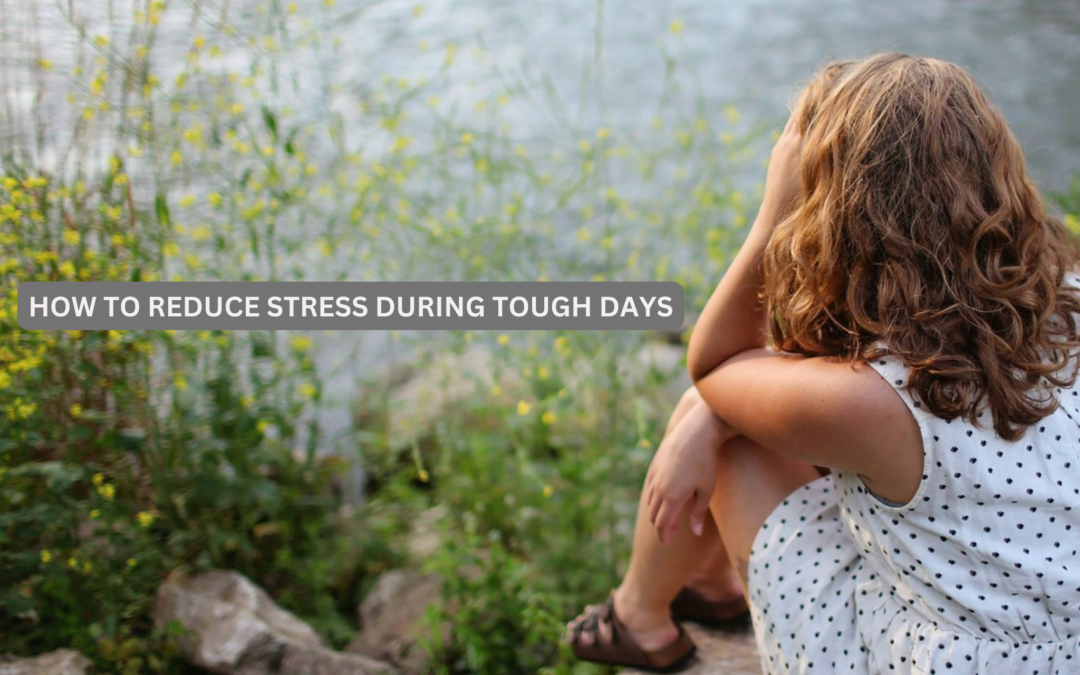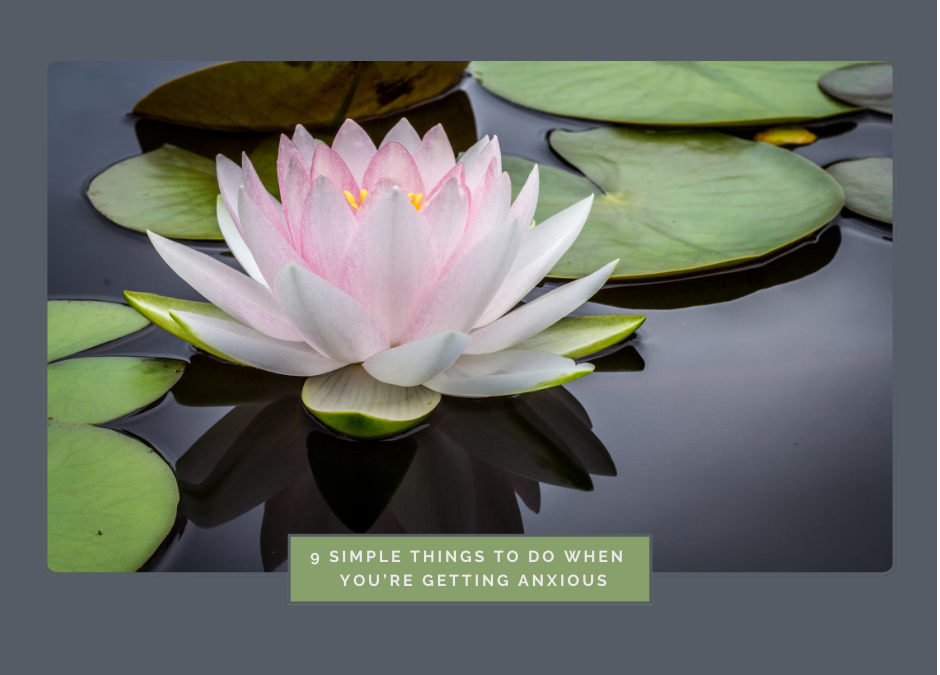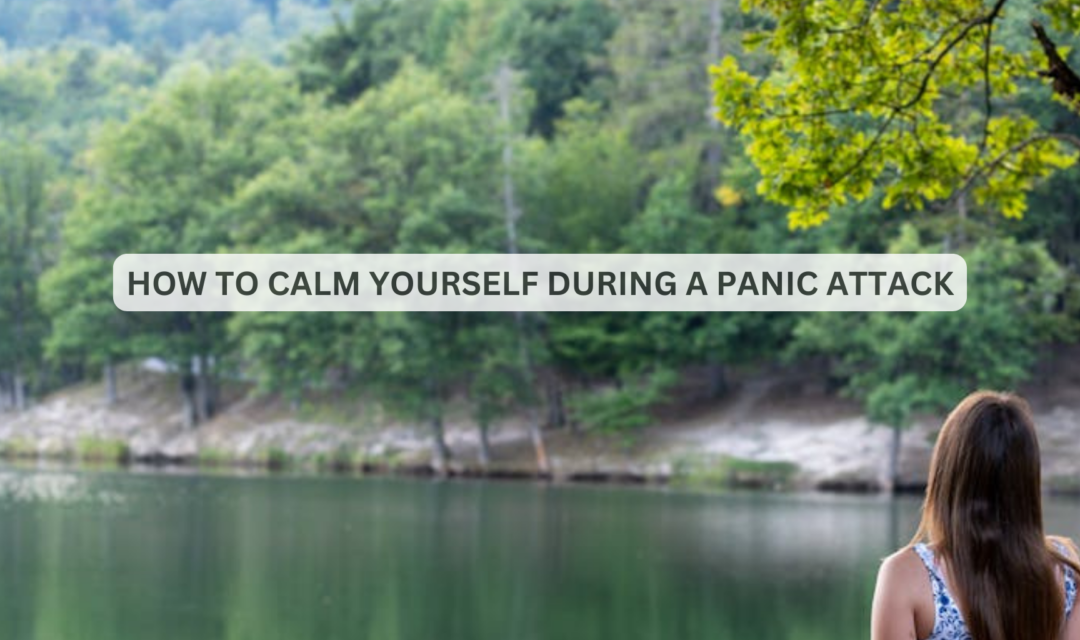
Guest post by Anne Peterson.
The day starts out fine. Things look okay and then before you know it your heart starts racing. You’re anxious, but don’t know why. You’re pretty sure if you don’t do something, you will work yourself into an even higher state of anxiety.
So what can you do?
Here are 9 simple things to do when you’re getting anxious.
1. Take care of your body
Sometimes we start feeling anxious when we need rest. If possible, lay down for a few moments. You body might be overtired and when we feel that way, we’re not able to think as clearly.
God himself rested on the seventh day, leaving us an example of how important rest is. And he’s God!
Maybe you need to eat something. Something nutritious. Put something healthy in your body, or have a nice cup of tea. I love Chamomile tea. When the prophet, Elijah was struggling with his emotions he was given something to eat and told to rest. You take care of others, you need to take care of you as well.
2. Just breathe
I know you’re breathing, but it’s important to for you to take slow, deep breaths. When we’re anxious, we have a tendency to breathe short breaths, which just makes us more anxious. Slow deep breaths can calm us down.
I remember once feeling like my blood pressure was up. I took out my monitor and sure enough it was high. Instead of just taking deep breaths and relaxing, I took it again and again. The more I took it, the more anxious I became and the higher it went. Finally, I called the ER, talked to a nurse and shared my numbers. She suggested I come in. Since then, I have learned I can relax and my blood pressure will lower, or I can get anxious and watch it rise.
3. Journal
I’ve had counselors tell me writing things out can help when you’re feeling anxious. Affirmations are also a good idea.
Pick a verse you find calming. Psalm 46:10 says, “Be still and know that I am God.” Write that verse over and over again. Write it out by hand. You may even feel yourself starting to relax.
Another good verse is Isaiah 26:3: “You keep him in perfect peace whose mind is stayed on you, because he trusts in you.”
Staying on God is simply allowing yourself to reflect on him. Staying on God is a wonderful image to hold onto.
4. Pray
Some people find great comfort in praying. Talking with God. Telling him how you feel as well as what’s troubling you. God tells us in 2 Peter 5:7: “Cast all your cares on him because he cares for you.”
When my grandson Charlie lost his little toy car he came and told me.
“Let’s pray, Charlie,” I said.
How excited Charlie was a little while later when his car was found.
He said, “First my car was lost and God ‘founded’ it.” God is concerned about whatever concerns us, even a little boy’s car.
5. Sing
At my sister’s murder trial, I would be next to testify. The officer brought me to an empty room where I was to wait. First, I quietly prayed, but my prayer turned into me softly singing. Even though physically I was in a courthouse at 26th and California, in Chicago, it felt like I was sitting on my heavenly Father’s lap, singing to him.
When the officer returned to escort me to the courtroom, I was calm and peaceful. If God can calm us down in that kind of anxious moments, he can calm us in anything.
When I’m somewhere I can’t sing aloud, I quietly recite the words to myself. Even that helps me. And as I’m silently singing, I’m sure God is pleased, for I’m focused on him.
6. Listen to music
Maybe you don’t want to sing, but you like listening to music. Let your favorite music take you to a restful place in your mind. It’s amazing how music can calm us down.
Or maybe you play an instrument and playing music can soothe your mind. I’m sure there will be music in heaven. Music beautiful and sweet.
7. Take in nature
Sometimes getting back to nature helps when we start getting anxious. Go outside, weather permitting. Look at the birds or even the flowers. Notice the sky and the formation of clouds. If you are near a pond or lake, notice how the ducks seem to glide in the water.
And if it’s raining, watch raindrops chase each other down the window pane. God is a master artist who created everything we see in nature. He gave full attention to every tiny detail.
Slowing down enough to notice God’s handiwork can be relaxing. Look at the stars and reflect on how God hung each one in place, and knows each name. Looking at the sky helps us realize how small we are and how insignificant our worries may be.
But if the worries you have are big ones. Remember this. No matter how big your problems are, our Father is bigger still.
8. Step it up
Maybe you need more exercise. Instead of a walk, go for a run, or get on a bike. Exercise can change the chemicals in our brain. And when we exercise, we release some of our anxiety.
You may be in a completely different frame of mind after you exercise. And then you’ll be able to look at your situation differently.
9. Take a hot shower or bath
I love a hot shower when I’m getting anxious. I picture whatever I’m worried about going down the drain with the water. I find the gentle water soothing and comforting. Some people like to soak in a nice hot tub, or a bubble bath. I enjoy nice long showers instead.
Mothers have found when they add lavender to their babies’ baths it calms them down and gets them ready for bed. So if you enjoy baths, you might want to try that. You need to value who you are so you can take good care of yourself.
God cares
Though God tells us to be anxious for nothing, sometimes our problems loom large in our minds. Maybe we’re tired, or hungry, or we just need to get out of the house. We just need to find whatever works for us.
Whether you sing, listen to music, or go for a walk, remember this. You are not alone. Your heavenly Father knows everything you’re going through and he’s right there with you. And when you don’t feel like he is, that’s where faith comes in. You need to hang onto what’s true, instead of trusting in your feelings which are fickle.
God loves you and he cares. How do I know? He wrote it in his love letter and God never lies.
Dear Lord, I pray for those who are reading this. We know you care about us God, and you care about whatever concerns us. Father, sometimes we worry instead of just trusting that you are in control. Help us to bring our worries to you. Help us to take care of ourselves so that our problems don’t make us anxious. Father, thank you for giving us tools to help when we start to falter. Thank you for your great Love. We pray this in your Son’s precious name. In Jesus’ name. Amen.

Read more about my He Whispers 3 Vol. Set Here.
What helps you when you’re feeling anxious?
Let us know in the comments below







